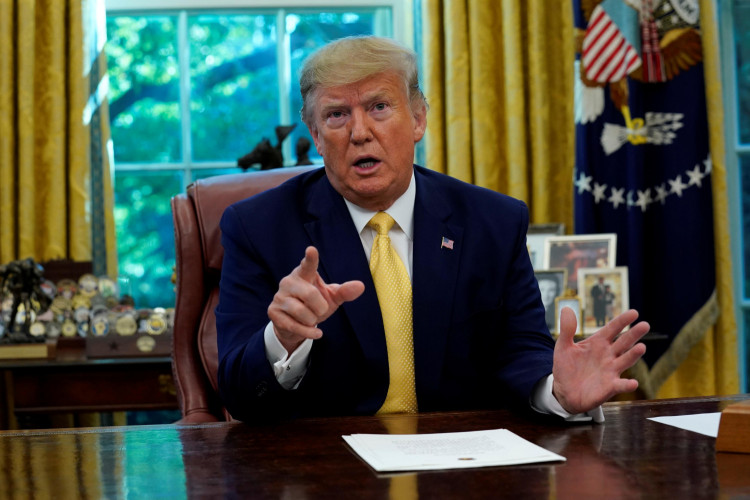The pledge of China to purchase US crops at $50 billion a year is not one that the world's second-largest economy plans to hold immediately.
"Some issues" need to change before the purchases- which United States President Donald Trump called a key part of a two-country "step one" trade deal - can begin, China's Rural Affairs Ministry told FOX Business.
Trump said at a speech on Friday that farmers would need to purchase more property and supplies to satisfy the surge in demand for American agriculture.
Nonetheless, it may take up to two years to reach the $50 billion thresholds and allow the US to raise tariffs on Chinese imports as a gesture of goodwill.
Even if a deal is signed, according to a global market research team at the Tokyo-based investment bank Nomura, China may have trouble living up to its end of the deal.
Customs data show that in 2017, China imported $124.8 billion in agricultural products and last year, $136.8 billion.
"This target could, therefore, be reached by shifting some purchases from other countries to the US," they added. "However, meeting this target will certainly be quite difficult for three reasons - 1. Chinese demand could be limited due to rising domestic output and falling demand for African Swine Fever; 2. China could face complaints from other countries if it ramps up its agriculture significantly.
Last week, the U.S. and China revealed the agreement for the first step of a trade deal that would see Beijing expand its farm imports from around $8 billion to $16 billion in addition to changing intellectual property policies to as much as $50 billion.
In exchange, on October 15, the US promised not to raise tariffs on Chinese products from 26 percent to 31 percent. A decision on the tariff increase scheduled for Dec. 15 has not yet been taken.
The two countries' economies have struggled as their differences dragged on. In the next six months, the Chinese market's gross domestic product (GDP) climbed to 6.1 percent, its weakest in more than two decades. And in the April- June period, the US market expanded at a pace of 2.1 percent, down from 3.2 percent in the previous quarter.
There is likely to be a worsening of the trade war on both countries and slow growth around the planet.
Trump recently met with China's negotiating team at the White House for the latest round of talks aimed at ending a 15-month trade battle that is weighing on the global economy.
China's vice-premier, Liu He, led the delegation in negotiations with the US trade representative, Robert Lighthizer, and the treasury secretary, Steven Mnuchin.
Meanwhile, Trump said he would likely not ink a trade deal with China until he meets Chinese President Xi Jinping at the forthcoming APEC Summit in Chile on Wednesday.
Trump, talking with White House journalists, said last week's preliminary trade deal was being formalized. "That is a journal," he said.
Putin, Xi, and other world leaders were expected to take part in the Asia-Pacific Economic Cooperation Summit in Santiago from November 11 to November 17.





